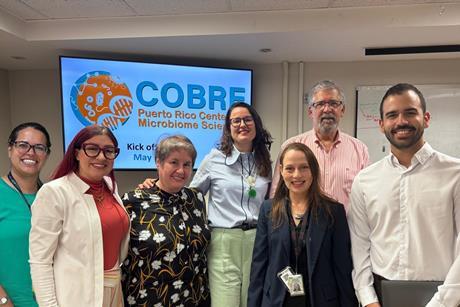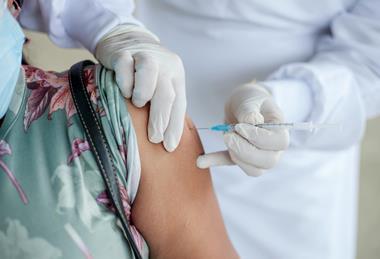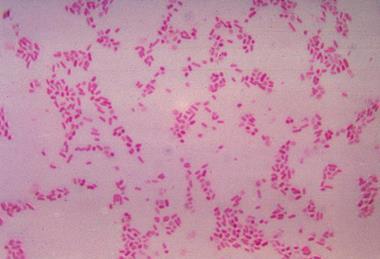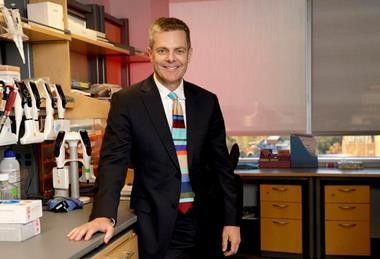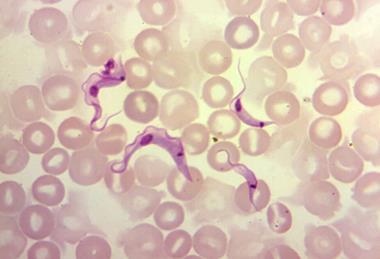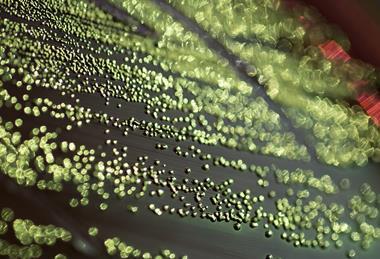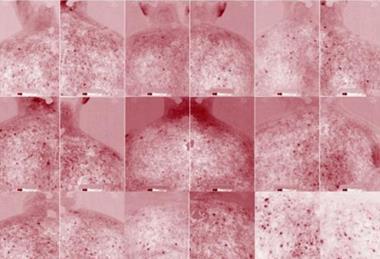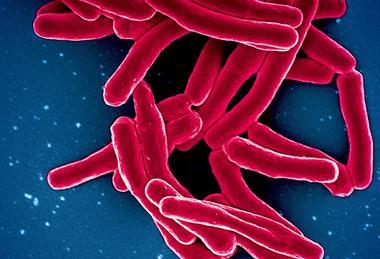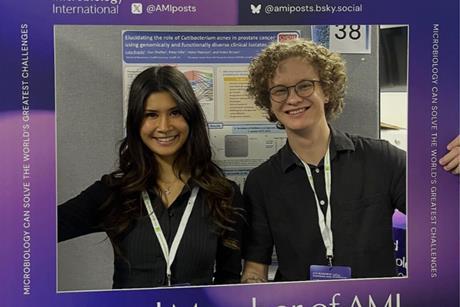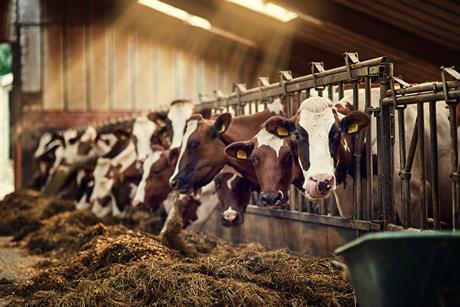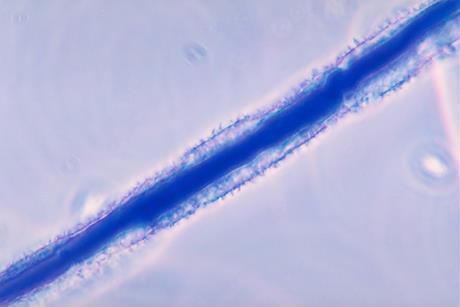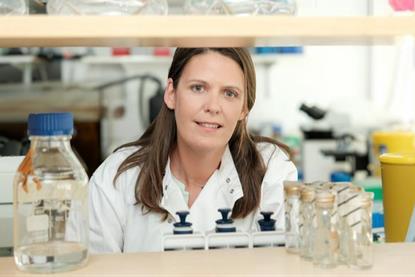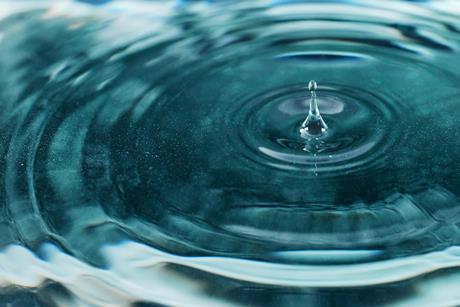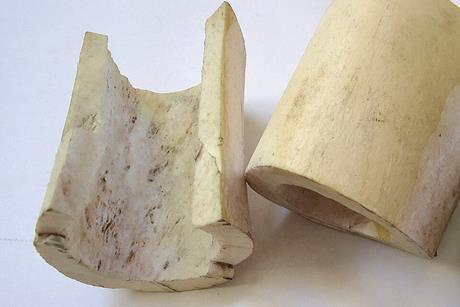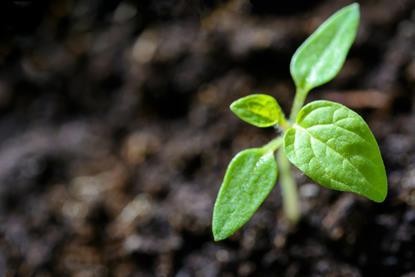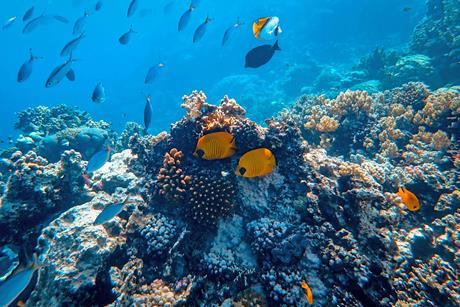Puerto Rico launches first Microbiome Research Center in the Caribbean
The University of Puerto Rico Medical Sciences Campus (UPR-MSC) has been awarded an $11.3 million NIH-COBRE grant to establish the Puerto Rico Center for Microbiome Sciences (PR-CMS)—the first of its kind in the region.
- Previous
- Next
How artificial intelligence and machine learning are transforming agriculture’s future
Agriculture is at a pivotal moment in history, and the sector needs to adopt new ideas to survive and flourish. AI and Machine Learning are no longer futuristic concepts; they are transforming farming today and helping to solve problems that have persisted for a long time.
Read storyTap water troubles: how drinking water systems contribute to NTM infections
Commonly found in dust and soil, NTM are worrying microbiologists and health experts alike. But is tap water an unsuspected vehicle for these deceptively harmful infections?
Genome sleuths: using DNA to trace the evolution of animal-to-human pathogens
Zoonotic spillovers have become a significant focus of global health, with outbreaks like SARS and COVID-19 underscoring how quickly these events can escalate into worldwide crises. Genomics is crucial in tracing the origins and predicting the emergence of zoonotic threats.
What can microbiology do for psychiatry
Explore the intersection of microbiology, mental disorders, and treatment.
Get unlimited access to The Microbiologist
The Microbiologist provides detailed information on the latest research, topics, reviews, events and news on a wide variety of microbiological topics.
Members of Applied Microbiology International get unlimited access as a benefit. Find out more about AMI Membership
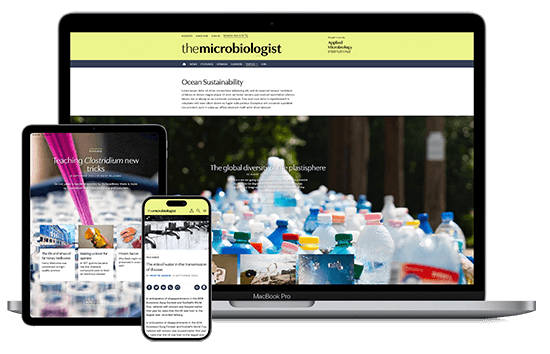
Clean data, clear insights: making AI work for microbiology
We are currently living through a period of AI boom. But as the AI fatigue starts settling in, should microbiologists be racing to embed AI into every pipeline?
Diet, microbiome, and health: epiphenomenon or causal connection?
The gut microbiome is considered a key determinant in human health. Yet, as attention and claims have grown, so has the gap between evidence and interpretation. How much does diet really influence the microbiome?
It’s game over for dangerous Gain of Function research
The Trump adminstration has signed an Executive Order halting federal gain of function research on microbes - but does it throw the baby out with the bathwater? Virologist Simon Wain-Hobson, Emeritus Professor with the Pasteur Institute, Paris, gives his take.
Petri dishes, phages, and public speaking - at the LAM ECS Research Symposium 2025
Rachael Barton and Luka Brajdić open up on their experiences of the Letters in Applied Microbiology ECS Symposium 2025 at the University of Liverpool on June 12.
Meet the Global Ambassadors: our Q&A with Arsalan Zaidi
The Microbiologist gets to know our new Global Ambassador for Pakistan, Dr Arsalan Zaidi, who is Principal Scientist at the National Institute for Biotechnology and Genetic Engineering.
AMI prizewinner Raquel Peixoto reveals how coral symbionts are key to tolerating rising temperatures
Marking World Coral Reef Day on June 1, AMI’s Rachel Carson Prize winner Professor Raquel Peixoto reveals how the ability of corals to tolerate rising temperatures is determined by the type of microorganisms that live inside them.
Comprehensive review sheds light on rare blood clotting syndrome linked to COVID-19 vaccines
A new analysis has provided critical insights into the rare but serious condition known as vaccine-induced immune thrombotic thrombocytopenia (VITT). The findings confirm a higher risk of arterial and venous thrombosis after COVID-19 infection compared to vaccination.
Scientists investigate gut microbiota in elderly patients with acute hepatitis E infection
A new study of the impact of hepatitis E virus infection on the gut microbiota identifies a bacterial species as a potential biomarker for disease outcomes.
Vanderbilt and Parse Biosciences collaborate on new measles treatment
Vanderbilt University Medical Center and Parse Biosciences, an innovator in single-cell sequencing, are collaborating on a new treatment to help unvaccinated measles victims, as the U.S. measles outbreak has now reached its highest case count in 30 years.
Food security
Scientists reimagine citrus greening treatment delivery
Texas A&M AgriLife Research is launching a multi-institutional study to develop and evaluate systems that deliver treatments to trees affected by citrus greening disease, also known as Huanglongbing.
Clean Water
Rain showers can dramatically impact fungal communities in urban lakes
Rainfall can have dramatic effects on the microbial communities living in urban lakes, a new paper published in the Journal of Applied Microbiology reveals.
Coral calcification benefits from human hormone injections
Researchers have identified how thyroxine, a human thyroid hormone, can positively influence the life-critical calcification in soft corals, and have developed a unique technique for injecting molecules into coral tissues.

